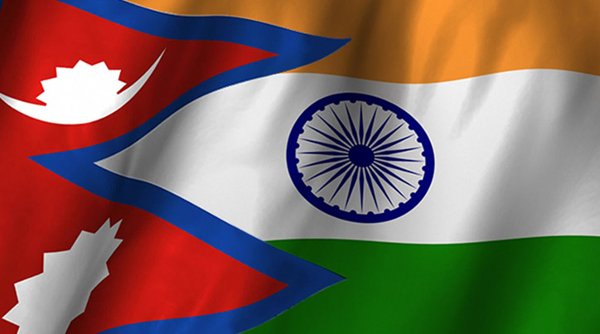Nepal signed an MoU with India to make a detailed project report for the proposed US$ 3.15 billion railway line connecting Kathmandu with the Indian border town of Raxaul.
This planned rail line is seen as counter to China’s bid to inflate the railway upto Kathmandu.
The broad-gauge line will give the Nepali capital an express connection with the Indian railway network, facilitating non-stop train travel to all Indian cities.
Both sides authorized the SOPs for start of passenger train services on the Jaynagar-Kurtha section and the MoU for concluding location survey of the planned broad gauge railway line between Raxaul and Kathmandu, according to Indian Embassy statement.
The agreements were authorized during the Fifth Joint Working Group and the 7th Project Steering Committee meetings in New Delhi on October 6-7, to assess implementation of ongoing cross-border railway links and overall bilateral cooperation in the railway sector.
On the Indian side, the JWG was headed by the Railways Ministry’s executive director, Traffic Transportation-Freight, Dr. Manoj Singh, and the PSC by the External Affairs Ministry’s joint secretary, DPA-III, Mr. Anurag Bhushan, and the Nepali side was headed by joint secretary in the Ministry of Physical Infrastructure and Transport, Mr. Keshab Kumar Sharma, in both meetings.
On March 9, the Nepali Cabinet had granted an in-principle approval to the Ministry of Physical Infrastructure and Transport to sign an MoU with India to create a proposal.
The Konkan Railways Corporation has already prepared a pre-feasibility study of the planned broad-gauge railway project.
The train link to Raxaul, which will be 136 to 198 km long, is seen as government’s attempt to counter Chinese influence in Nepal. According to the interpretation, India will finish the detailed project report by 18 months of the beginning of the agreement, and Nepal will facilitate the process. The Indian government will take up the cost of preparing it.
Once this railway is built, goods can be transported directly to Kathmandu from India and third countries. Presently, shipments coming from overseas are took to the inland container depot in Birgunj by rail and transferred to Kathmandu and other locations by road.
The SOPs of Jaynagar-Kurtha railway provide the technical features of running passenger trains on the new section and will operate as a guiding document for early start of rail services in the upcoming cross-border railway links with Nepal. This construction of the Jaynagar-Kurtha railway line was sponsored by India.
Besides reaching out to these two understandings and agreements, both sides debated the current works of Jaynagar-Bijalpura-Bardibas, and Jogbani-Biratnagar broad gauge railway lines between India and Nepal, being developed with grant assistance from the Indian government.
Nepal and India are considering at least five different cross-border railway lines between the two countries.
“The technical readiness of the completed 34-km-long section of the railway line, from Jaynagar (India) to Kurtha (Nepal) for operationalisation of passenger train services was also assessed. Nepali side also notified that necessary regulatory framework will be put in place to enable early operationalisation. For Kurtha to Bilajpura (17.25 km) section of the railway line, Nepal guaranteed to provide necessary facilitation for completion of the work at the earliest,” the statement added.
Both sides also consented to accelerate the work on completion of the 18.6-km-long Jogbani-Biratnagar rail link, and its early operationalisation.
During then-Nepal Prime Minister Mr. KP Sharma Oli’s state visit to India in April 2018, the two neighbours had come to an agreement to construct a new electrified rail line with Indian financial support connecting Raxaul and Kathmandu.
As per the joint statement issued at that time, the purpose of constructing the railway is to develop connectivity to enhance people-to-people linkages and stimulate economic growth and development. In August 2018, the two sides exchanged an MoU to carry out an initial engineering-cum-traffic survey of the broad-gauge line. India had authorized Konkan Railway Corporation to undertake the study.
As per the survey report, construction of the planned railway will need an investment of US$ 2.66 to US$ 3.15 billion, in addition to land acquisition, taxes on imports of several technical and other materials.
The Indian side has planned to build four lines to connect Raxaul with Kathmandu. The construction is likely to take five years after clearance of the land from the Nepal side.
You may also like
-
IAF Aircraft Set Course For Exercise Eastern Bridge VII At Oman
-
India-us Working Together In Areas Like Critical Minerals, Supply Chains And Advanced Technologies: Shri Piyush Goyal
-
Defence Secretary to co-chair 5th India-Philippines Joint Defence Cooperation Committee meeting in Manila
-
2nd India-Japan Finance Dialogue held in Tokyo on 6th September, 2024
-
Prime Minister, Shri Narendra Modi welcomes Crown Prince of Abu Dhabi
